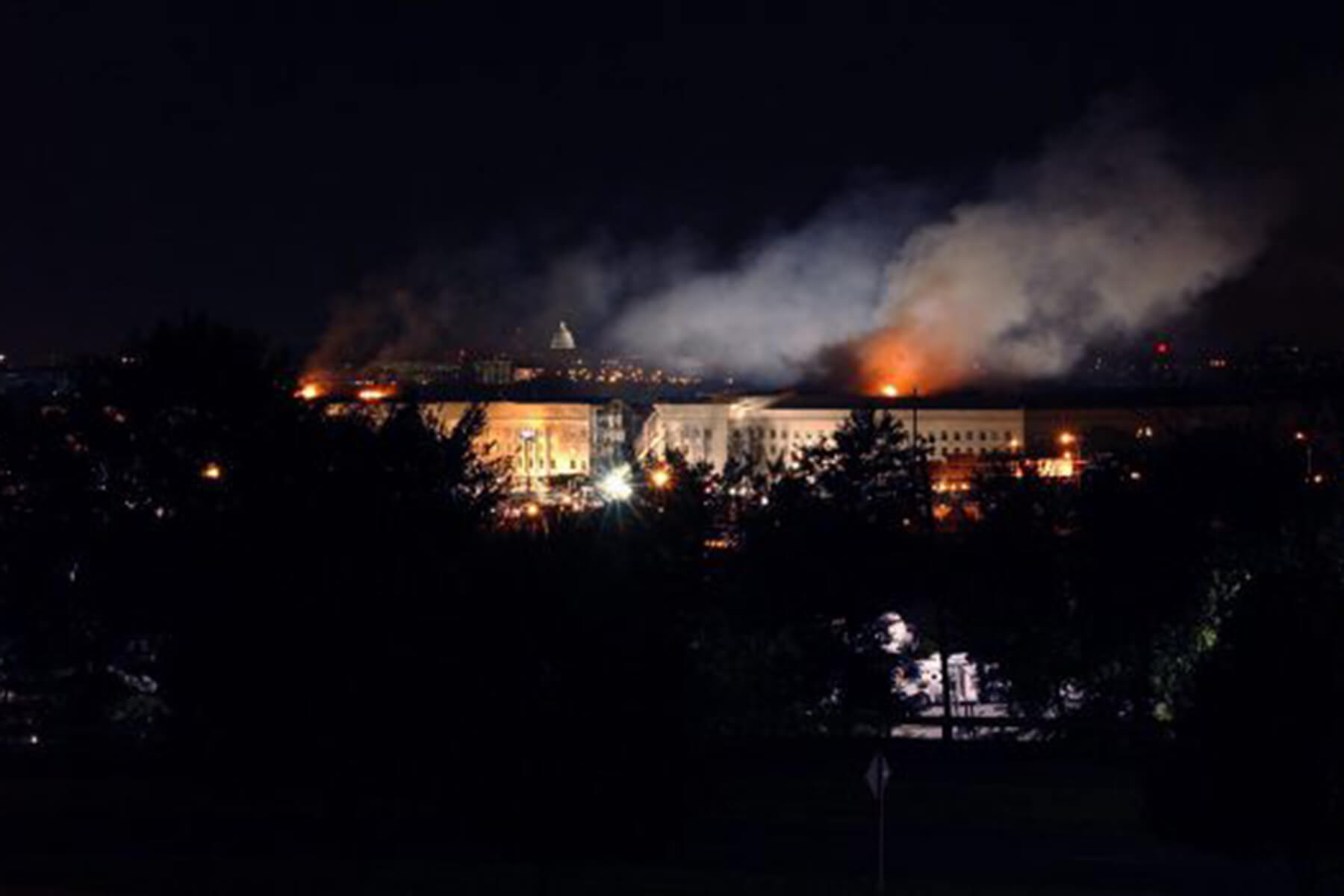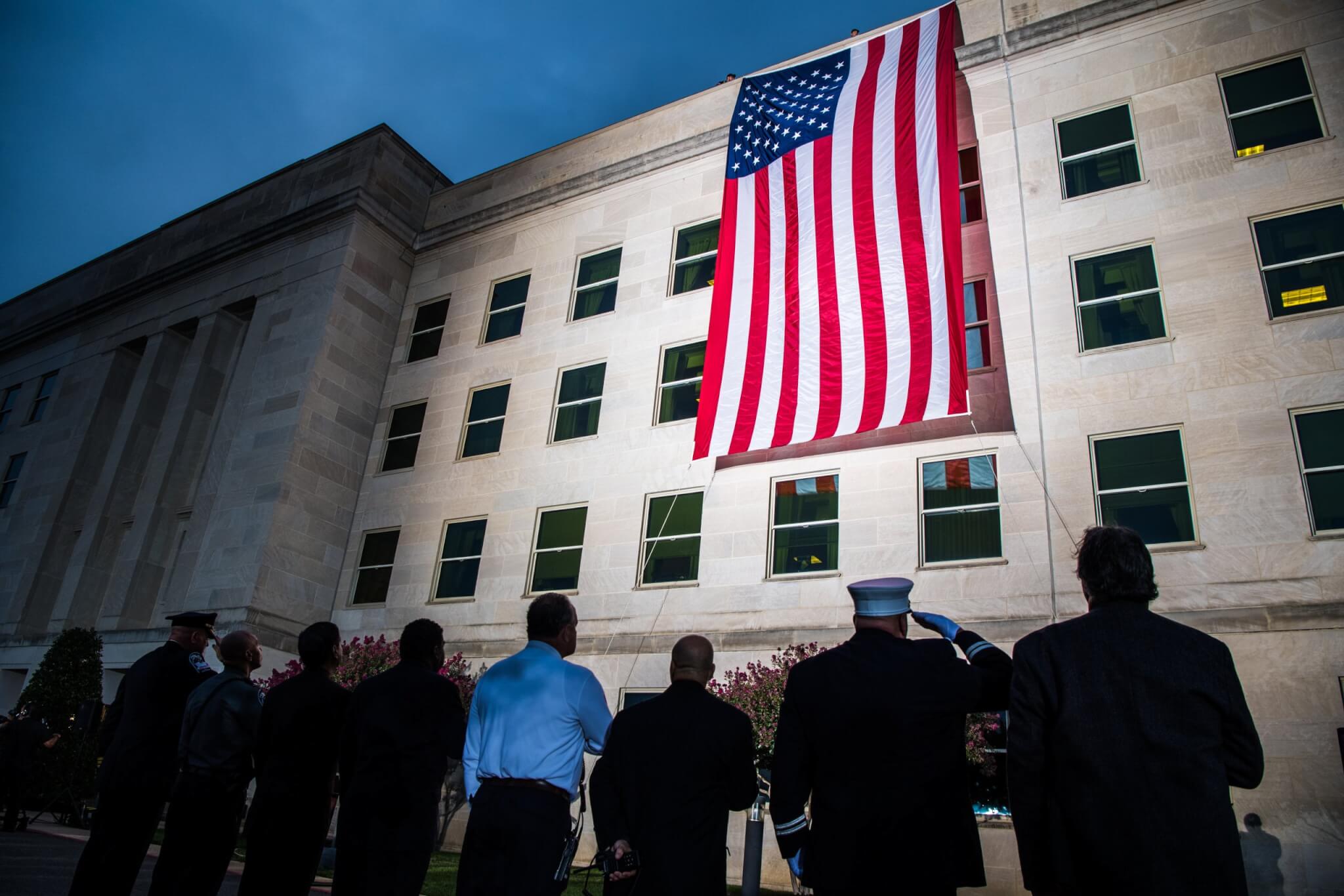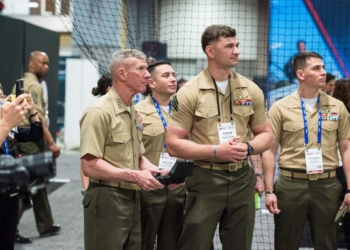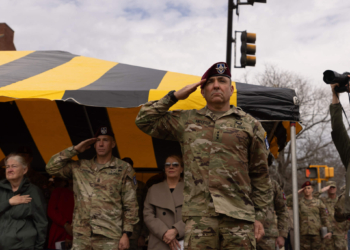You’d be hard-pressed to find an American over the age of 35 who doesn’t remember where they were or what they were doing when hijacked planes crashed into the World Trade Center, the Pentagon, and a field in Shanksville, Pennsylvania.
Some retired Army officers — Col. Mark Lewis, Col. Roy Wallace, Col. Dr. Gerry Kitzhaber, and Col. Marilyn Wills — experienced the attack from inside the Pentagon. They gathered recently to share their stories ahead of the 20th anniversary of the 9/11 terrorist attacks.
When American Airlines Flight 77 crashed into the Pentagon on the morning of Sept. 11, 2001, 125 Department of Defense employees, including service members, civilians, and contractors, were killed along with the 59 souls on board the aircraft.
Twenty-nine of the people lost inside the Pentagon that day were part of the Army Office of the Deputy Chief of Staff for Personnel, also known as the Army G-1.
Read: The walls shook: Veteran recounts 9/11 from inside the Pentagon
Kitzhaber’s birthday is Sept. 11. He says a phone call from his wife that morning is likely the reason he’s alive today.
“I was trying to get down to Gen. Webster’s office, but I kept getting waylaid,” he said. “As I was about to head down, my phone rang.”
Kitzhaber and his wife discussed dinner plans for his birthday. He recalls her asking if he was safe in light of the plane crashes at the World Trade Center in New York.
“Yeah, nothing happens at the Pentagon,” Kitzhaber told her.
He hung up the phone, and moments later, the plane came crashing through the building.
Relying on instincts

Lewis was in a hallway when the building jolted. He remembers the heavy smoke and the strong smell of jet fuel filling the air and people running around disoriented.
He says upgrades had been made to the Pentagon, including the installation of reflective arrows to help orient people and point them in the direction of exits.
“In case something like this were ever to happen again,” Lewis said.
“We aren’t naive enough to believe it’s going to be the last time. The generations behind us have to be ready,” he added.
Wallace recalls 24 years of military training kicking in when the plane came crashing through the Pentagon.
“I just thought, ‘Get your people. Get them out.'”
And so, he did.
He also reflects on the war that commenced immediately after.
“This was a different kind of war. The enemy wasn’t readily definable. The enemy we’ve been fighting the last 20 years disappears in a puff of smoke. It’s an ideal. It’s not a country,” Wallace said.
A will to survive
Wills didn’t know anything about the planes crashing into the World Trade Center the morning of Sept. 11, 2001. She was in a meeting sitting at a conference table.
“It was the loudest explosion I ever heard,” Wills said. “The room went completely dark.”
The blast launched Wills from one side of the conference table to another. She and her colleagues crawled out of the room and under cubicles trying to find a way out.
She remembers another woman struggling, her nylon pantyhose melting into her legs from the intense heat. The woman, named Lois, said she couldn’t go any further.
“Oh yes you, can,” Wills remembered saying, “Get on my back.”
Wills carried her to a window. After much effort, the group she was with managed to force open the second-story window and helped each other down. The first few jumped and were caught by a Navy captain waiting at the bottom. Others climbed down after a human ladder was formed.

When it was her turn to go through the window, Wills tried to turn back into the building to look for more people. However, a colonel stopped her and ordered her to exit.
“It was the only [order] in the Army I did not want to obey,” Wills said. “We lost so many that day. It was devastating.”
Lewis, Wallace, Kitzhaber, and Wills each lost friends and colleagues that morning. Each of them also returned to work at the Pentagon in the days and months after the attack.
“The psychological part of it was very difficult, but I knew I had to come back,” Wills said.
Read comments







































